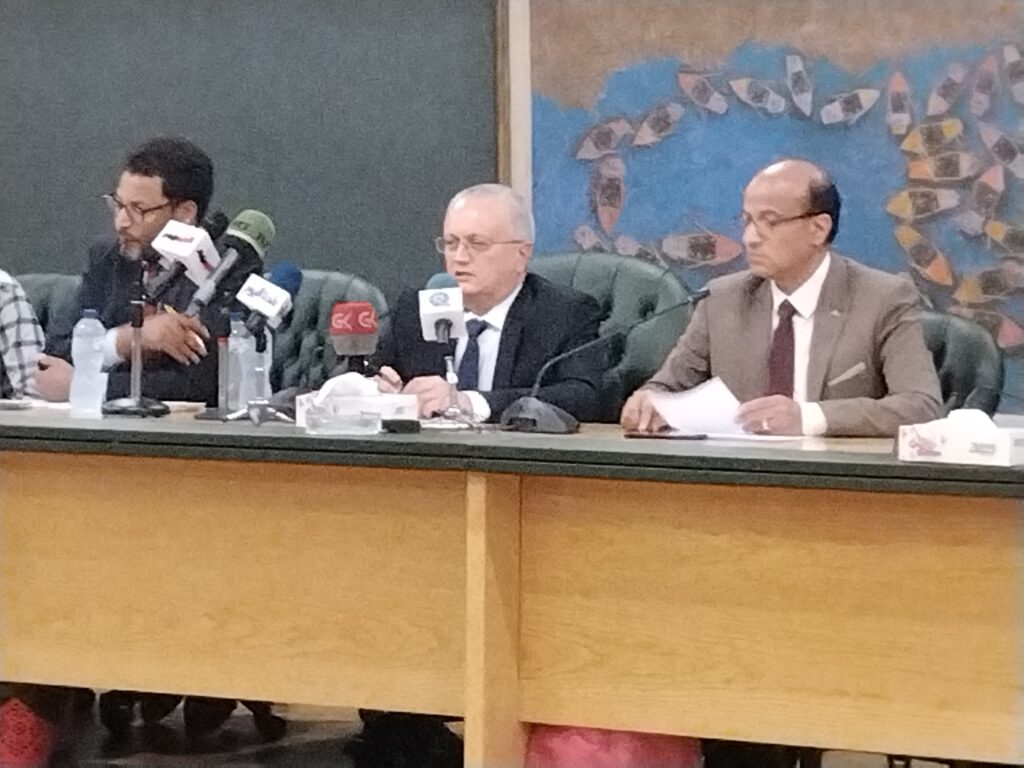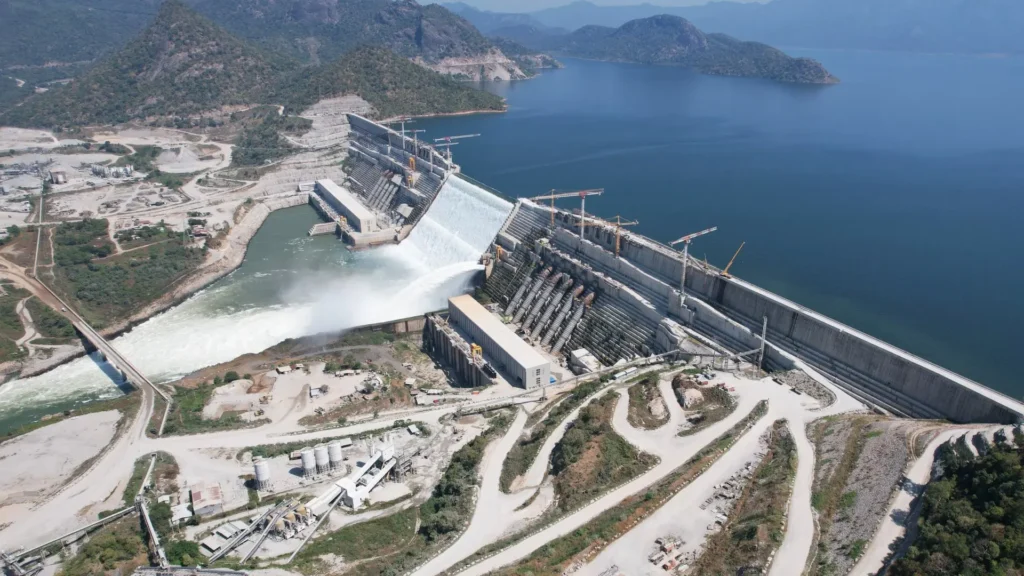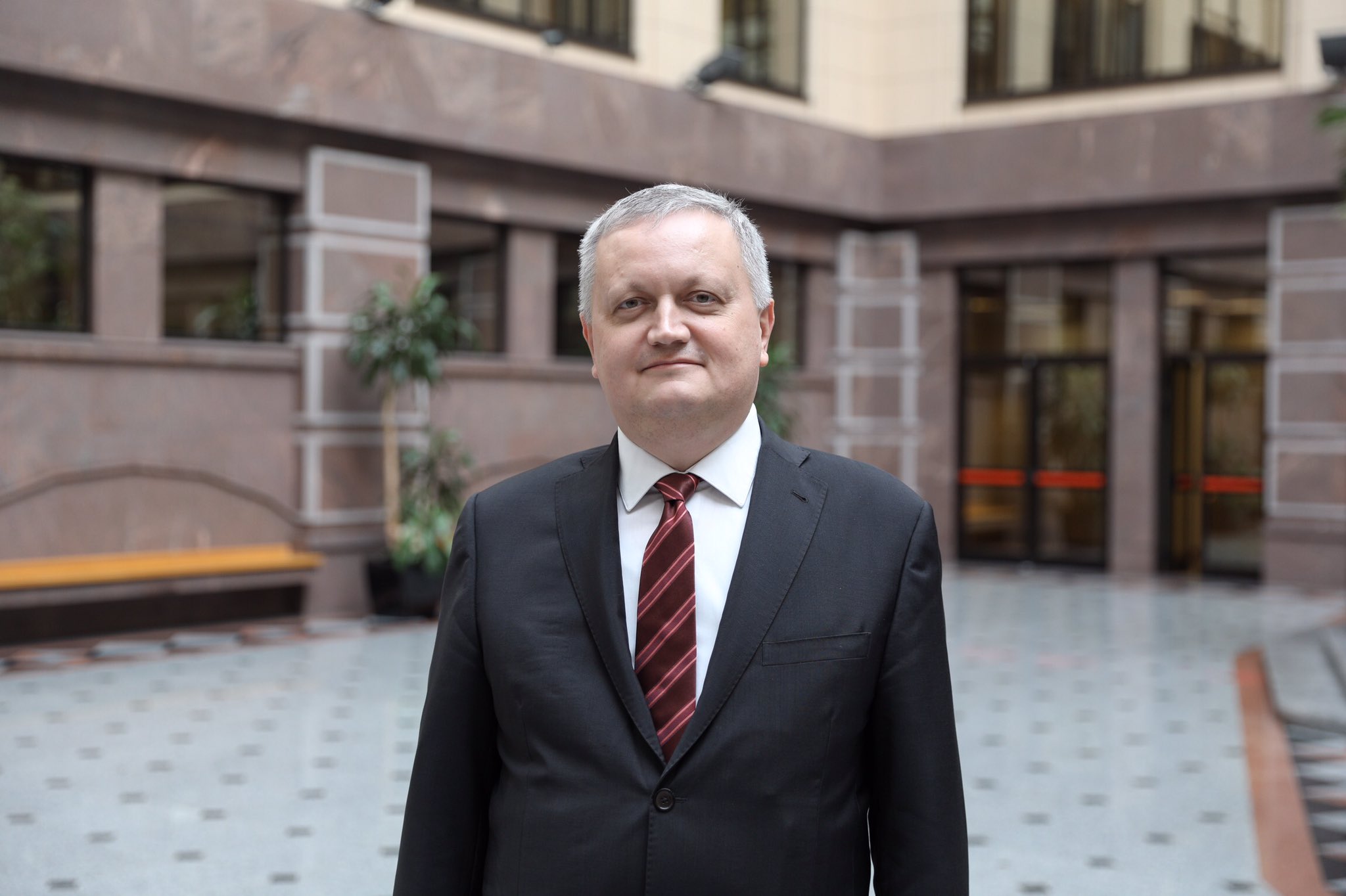Food & climate
BRICS can find solutions to its members’ various problems, including those related to water, such as the Grand Ethiopian Renaissance Dam crisis between Ethiopia and Egypt, according to Russian ambassador to Cairo, Georgiy Borisenko, today.
This came during a meeting held by the Foreign and Arab Relations Committee of the Egyptian Journalists Syndicate with the Russian ambassador, to discuss all issues related to Egypt and the region, and the “Food & Climate” platform participated in covering it.
In January, BRICS, which includes many countries in its membership like Russia, China and Brazil, welcomed four new members into its ranks – Egypt, Ethiopia, Iran, and the United Arab Emirates.
“Russia has repeatedly urged its Ethiopian ally to take Egypt’s concerns about the Grand Ethiopian Renaissance Dam into consideration before”, Borisenko said.
He added: “We often send signals to our Ethiopian friend about the need to reach a solution that satisfies all parties concerned with the Grand Ethiopian Renaissance Dam issue.”
The BRICS 2024 summit will be held in October in the Russian city of Kazan, and its presidency will move to Russia next year.
Egyptian President Abdel Fattah El-Sisi and Ethiopian Prime Minister Abiy Ahmed are expected to participate in it, which is an opportunity to discuss the Grand Ethiopian Renaissance Dam crisis during the summit, according to Borisenko.
Renaissance Dam crisis
The relationship between Egypt and Ethiopia deteriorated due to the Renaissance Dam, and the failure of negotiations regarding coordination between the two countries, along with Sudan, in filling the dam.

Yesterday, the Nile River Basin Cooperative Framework Agreement (CFA), which is known by Entebbe Agreement, officially came into force (on October 13, 20240, while the tension between Egypt and Ethiopia about Grand Renaissance Dam continuous.
Egypt and Sudan have so far rejected the agreement while the CFA has been signed by upstream countries, including Ethiopia, Rwanda, South Sudan, Uganda, Tanzania, and the Democratic Republic of Congo.
So, Egypt yesterday called on the Nile Basin countries to reconsider the Cooperative Framework Agreement (CFA), according to “Middle East Monitor”.
“We call on the Nile Basin countries that signed the Entebbe Agreement to review their position and return once again to discuss cooperation between countries in a way that does not harm any of the riparian countries,” Irrigation Minister Hani Sewilam said at a water event in Cairo.
“Egypt’s position is fair and consistent with international river agreements enforced internationally,” he added.
The Egyptian minister stressed that the discussions “must include all countries and don’t exclude the interests of one country over another.”
Sewilam said Egypt’s water supply does not suffice the country’s needs.
“Egypt will not concede even a single cubic meter of Nile water and firmly rejects the Entebbe Agreement in its current form,” he stressed.
Egyptian President warns
Egyptian President Abdel Fattah Al-Sisi said early yesterday that preserving Egypt’s water resources is an “existential issue”.
“The Nile River is the primary source of water for Egypt, accounting for over 98%” of its water supply, he added.
The CFA represents the first multilateral effort by the Nile Basin states to create a legal and institutional framework to govern the use and management of the river.
The Nile River has been a source of tension, especially between Egypt and Ethiopia, as the latter began construction of the Grand Ethiopian Renaissance Dam (GERD) on the Blue Nile, a major tributary of the Nile River.

Ethiopia views the dam as essential for its economic development and insists it poses no threat to downstream water supplies. Egypt views the GERD as an existential threat to its water share from the Nile and demands a binding agreement on the dam’s filling and operation.

